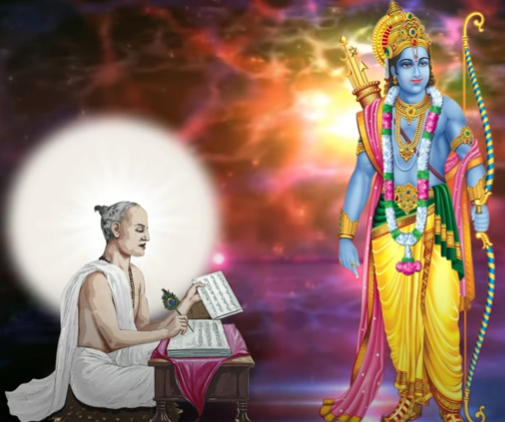Tulsidas, also known as Goswami Tulsidas, was a Hindu poet-saint, philosopher, and reformer, renowned for his significant contributions to Indian literature, especially in the realm of devotional poetry. He is best known for his epic poem "Ramcharitmanas," an adaptation of the Sanskrit epic "Ramayana" into Awadhi language, which is spoken in parts of northern India.
Name: Goswami Tulsidas.
Birth: Savant 1589 Rajapur (Uttar Pradesh).
Father: Atmaram.
Mother: Hulasi.
Wife: Ratnavali.
The talent and rays of the great poet
Tulsidas are illuminating not only Hindu society and India, but the entire world. It is a matter of great regret that the birth of the same poet is in the darkness of controversies. Research findings so far also appear unable to provide us with certainty. Dr. Pitamber Dutt Barthalwal and Shyamsunder Das based on the facts of Moolgosai-Charit and "Manasamayank" -Car on the basis of any public opinion also support 1557.
Early Life of Tulsidas :
Tulsidas was born in 1532 CE in Rajapur, a village in present-day Uttar Pradesh, India. He spent his early years studying Sanskrit, philosophy, and religious texts under the guidance of various scholars.
Spiritual Journey of Tulsidas:
Tulsidas was deeply devoted to Lord Rama, an incarnation of Lord Vishnu, from an early age. He embarked on a spiritual journey, seeking a deeper understanding of devotion and the divine. Legend has it that he received a vision of Lord Hanuman, a devotee of Lord Rama, who inspired him to compose poetry dedicated to Lord Rama.
Guru of Tulsidas :
The names of many individuals are taken as the Guru of Tulsidas. According to Bhavishyapuran, Raghavananda, according to Wilson, Jagannath Das, Narasimha Chaudhary according to the facts obtained from Soron, and Grierson and Narhari according to the perspective were the Guru of Tulsidas. The impossibility of being Guru of Raghavanand and Jagannath Das has been proved. In the list given by Grierson based on an available list of the Vaishnava sect, which is mentioned eight generations before Raghavananda Tulsidas. In such a situation Raghavananda cannot be considered the Guru of Tulsidas.
Ramcharitmanas:
Tulsidas' most significant work is the "Ramcharitmanas," an epic poem that narrates the life and teachings of Lord Rama. Written in the form of a dialogue between the sage Narada and Lord Shiva, this masterpiece of devotional literature is considered one of the most important texts in the Bhakti movement.
Later Life:
Tulsidas spent a significant part of his life in Varanasi, a city in Uttar Pradesh, where he continued his literary and spiritual pursuits. He established several Hanuman temples, and his devotional hymns and compositions are still sung in these temples and in various devotional gatherings.
Compositions of Tulsidas:
• Keshav, Kahin Jai / Vinay Patrika.
• Sun Mana Moodh / Vinay Patrika.
• Hari! Who are you very gracious
• Laj na avat das proverb.
• I am very heavy.
• My way is speed Raghupati to be sacrificed.
• Madhav, why is there a temptation?
• God! Who is kind to others
• O Hari! Kavan Jatan ran confusion.
• This request was made by Rahubir.
• Ask for more, prevent Magibo.
• I hear Hari, fallen holy.
• Mero Mana Hariju! Don't persist
• Tou is not my age.
• Madhav! Nobody like me in this world
• Te Nar Narkarup Jeevat Jag.
• Mana Madhavko Neku Niharihi.
• Which mind is Ramcharan as.
• Bhaj Mana Ramcharan Sukhadai.
• Now Flame House, Now Nurses.
• The mind has lost the opportunity.
Contributions and Impact:
Tulsidas' "Ramcharitmanas" is highly regarded for its poetic beauty and profound spiritual insights. It played a crucial role in popularizing the story of Lord Rama and promoting devotion to him among the masses. The poem emphasizes the ideals of dharma (righteousness), devotion, and the importance of leading a virtuous life.
Legacy:
Tulsidas' influence on Indian culture and spirituality is immense. His writings have inspired generations of devotees, scholars, and artists. His teachings continue to be widely respected, and his work remains an integral part of the cultural and religious fabric of India.
Tulsidas is considered a revered figure in Hinduism, and his contributions to literature and spirituality have left an indelible mark on the religious landscape of India. His legacy continues to thrive through the timeless verses of the "Ramcharitmanas."



